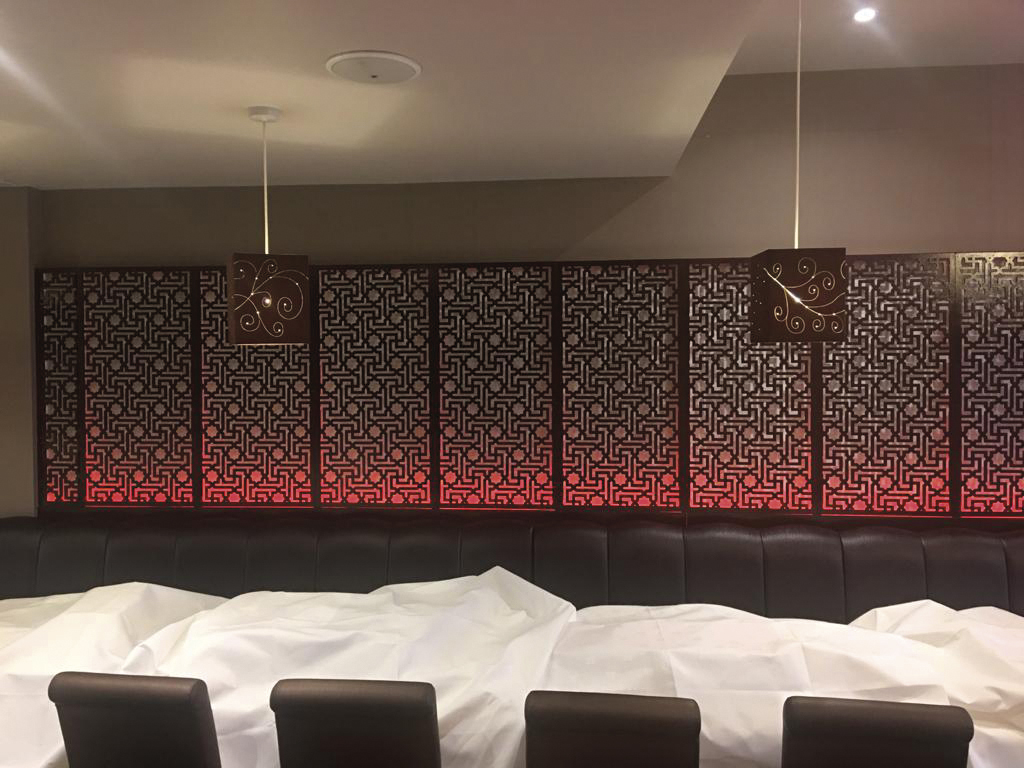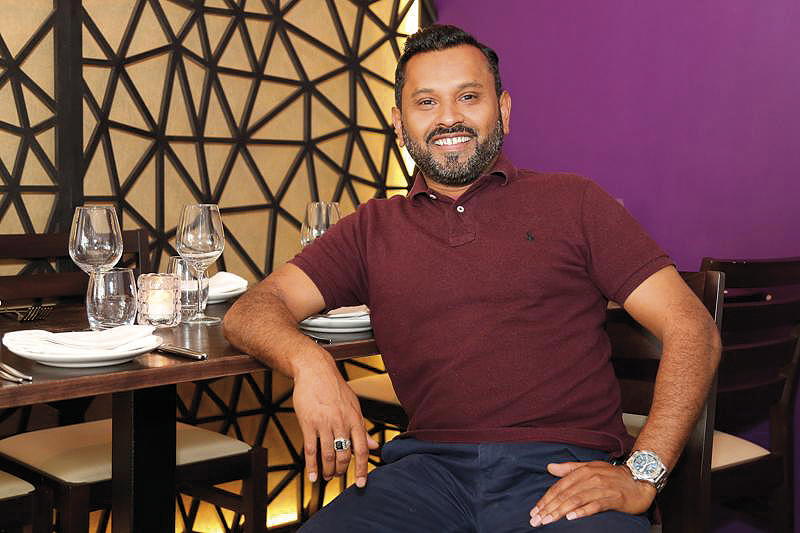For Indian restaurateurs up and down the country, the news that their business could finally re-open after first lockdown ended on July 4th July. It was welcomed with open hands. After months of boarded-up doors, empty kitchens and mounting economic struggle, those in the hospitality industry would finally be able to jump back into doing what they love best.
But what is this new reality really like for restaurants? After safely re-opening, did many find that they were faced with demanding customers, a shortage in tips and technological nightmares? Was the challenge in implementing the government’s Covid-secure measures not worth the attempt at re-opening?
Now, we have the new national lockdown was declared and came into effect from Thursday, 5 November 2020

For Abdul Milad, owner of Indian Moments, the past few months have been “completely upside down” for business: “It’s a complete disaster for the curry industry. We just have to rely on takeaways and delivery business to survive, despite investing a lot to make our place Covid safe.

Obviously, it’s not like before – business has completely calmed down. We are told to keep ourselves safe, but I don’t know, we are thinking about it all the time – what’s going to happen next, are we going to be ok – so yes, it’s really stressful at the moment.”
The whole of August included a government-funded initiative, Eat Out to Help Out, which saw slashed bills in half for all restaurants, bars and cafes involved in the scheme. Abdul claims the scheme was “good for us, we did really well, even though the weekends were very quiet”, though he admits, however, that it hasn’t always been plain sailing for trade: “When we started it was bad, then August was very good, but after the scheme expired it became very quiet. We are still running offers on our side, for September we were doing £10 pp discount every Sunday-Tuesday, and because of the curfew we are opening earlier, so at lunch we offer 50% off until 6pm, and then from 6pm onwards it’s 30% off.”
Discounts have certainly helped maintain bookings, but how much longer can restaurants slash prices to appease anxious customers? Abdul admits he isn’t too sure: “It’s helped business, and it’s been busy. But the problem is that we don’t know. We are hearing there’s going to be another lockdown, so it’s not like before. It’s not like last year. We have a long way to go until we achieve what we were doing this time last year.”
Implementing the government’s Covid-19 safety measures has undoubtedly made it harder for restaurants to run as smoothly as before, says Abdul: “maintaining the safety measures in the beginning was hard, but now we are used to it. We know how to keep ourselves safe and take all the precautions: wearing masks, gloves, hand sanitising, washing hands, sanitising everything top to bottom before we open. The problem is when we are serving food to customers at tables, we are not able to serve at a 1-metre distance from them, we are almost neck to neck. That’s what scares us. Customers are sitting 1-metre away from each other, but we are not. It’s tough. But we are complying with the measures and every day we are looking into how we can improve and make it easier for us and the customers.”
With economic uncertainty continuing to ripple through each stage of the pandemic, restaurants are also witnessing a shortage of customer tips. Shahid Rahman, the owner of The Rajdoot in London, has personally witnessed a shortfall: “So many have lost their jobs or are on furlough, they face uncertain futures, so of course they’re going to be stingier with money,” says Shahid.
With so many changes necessary for restaurants to operate, Abdul Milad has witnessed a range in customer’s compliance with the measures: “When the customer comes in, we ask them to sanitize and scan the NHS QR code. Some customers do, and some don’t. Everyone sanitises that’s for sure – some even go to the toilet directly and wash their hands properly before they sit down – but you can’t get everybody to do the same, some don’t care.”
Abdul also mentions how the introduction of measures have arrived with a hike in prices:
“Covid-19 has put the expense up high for us: QR codes, hand sanitising, gloves, masks – there’s a lot of things to purchase and we’re spending a good amount each month on them. It’s definitely affected our profit margins and as a result we are suffering from not doing the same business as we used to do.”
The safety and confidence of staff are paramount to running a sustainable business, with Abdul admitting the past few months have seen a rise and fall in staff’s confidence: “At the beginning of lockdown, we closed completely for four weeks because my staff were very scared and so was I. After that, some of my staff felt more confident, so we opened for takeaway. Over the summer, the fear was still there but the rate was down, but now, because it’s increasing again and it sounds scary in the news, my staffs are getting scared to come to work. They are more worried now than they were in the beginning; they don’t know the future or whether they should continue to work. The way it’s going now, the Coronavirus is going to create a huge amount of problems with staff and running the restaurant, because if you don’t have staff, how are you going to run it? Furlough is stopping from next month, and if staff stay home, can you continue to pay their salary, or give them redundancy?”
This uncertainty has unfortunately already led to Abdul letting staff go: “I let two people go in May. I couldn’t keep them; the amount of furlough pay was not enough so they moved on. My fear is the furlough will stop and if Coronavirus spreads the way it’s spreading now – in the wrong direction – staff will want to stay home, to keep themselves and their families safe, which is very respectable and I respect that, but then again how am I going to run my business? Where am I going to have to find new staff? It’s a challenging time ahead for the curry industry.”
Aside from the financial problems that the industry faces, emotions are running high for those attempting to keep businesses afloat: “People are confused and scared, everyone is, but I need to go to work. The fear is there, I’m scared every day when I go to work. It’s an invisible enemy and we don’t know who is carrying it – those who come to eat at the restaurant may have it. It’s a difficult situation,” says Abdul.
The latest attempt from the Government to curb the second spike was the blanket 10pm curfew for all bars and restaurants, which has left the hospitality industry with even more logistical struggles, says Shahid: “I personally think banning household mixing would have been a much better idea than the curfew.”
Abdul is similarly disheartened by the curfew: “I was obviously very sad, and I don’t know how the 10pm closing will help fight Covid-19. Everyone is coming between 7-8pm and the kitchen is backed up. I definitely think it should stay for bars, pubs and clubs because young people go late at night and don’t maintain social distancing, but I don’t think the curfew for restaurants make any sense. I think the government are failing policy in this country. They are disorganised. They had enough time in the summer and they kept talking about the second wave in the autumn. The government are failing to do all of this and they are confused and confusing the public.”
Abdul acknowledges that his mental health has been seriously affected by what’s happened in the past six months: “I’m very concerned about my health, as well as my staff and my family’s. I go to work every day – I need to because it’s my bread and butter – but I’m worried and scared and it’s scary for me and my staff.”
With restaurants having no choice but to revert to delivery should a local or national lockdown occur, the upcoming weeks and months have never looked more tentative. “It’s very hard to tell, but something I always tell my family, and I tell my staff, is that we have a very challenging time coming ahead,” says Abdul. “I think coronavirus will remain after winter, and business-wise as a whole, not only curry industry but everyone will be affected, people will lose jobs, and it’ll have a big impact on every single business in the country. People will only survive who have the manpower and a very high reputation and people who run family businesses, they will be able to survive. Those who rely on employees are going to be tough for them. It’s going to be a challenge and we will definitely suffer. I just wish everyone all the best and wish everyone to be safe.”
As we collectively face uncertain futures, with the prospect of a difficult winter to come, restaurants are undoubtedly nervous about what lies ahead, with Shahid claiming winter will be “the hardest month yet” with fragile business conditions.




